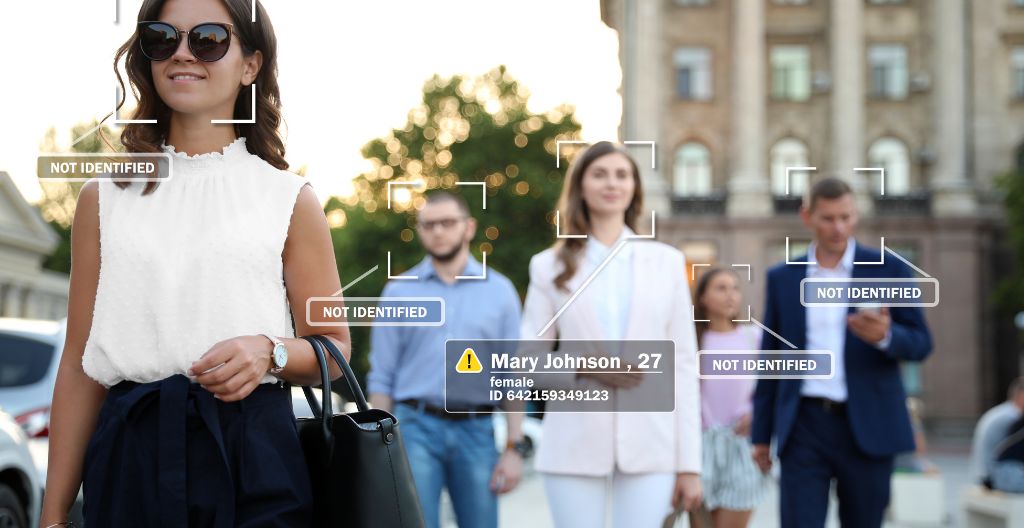In today’s ever-changing landscape of data protection and privacy, organisations are faced with the daunting task of complying with the General Data Protection Regulation (GDPR) or face significant financial consequences.
This comprehensive guide aims to provide a clear overview of the fines and penalties associated with GDPR non-compliance, offering businesses the necessary knowledge to safeguard personal data, maintain trust with customers, and navigate the regulatory landscape with confidence.
Understanding GDPR fines and penalties is vital for organisations committed to upholding data protection and privacy standards.
Key Takeaways
- Compliance with GDPR builds trust with customers and stakeholders.
- Fines under GDPR can range from up to €10 million or 2% of annual global turnover for less serious infringements, to up to €20 million or 4% of annual global turnover for more serious infringements.
- Factors in calculating GDPR fines include the nature, gravity, and duration of the infringement, intent or negligence behind the violation, mitigation efforts, and history of infringements.
- GDPR compliance involves personal data collection and processing, data protection impact assessments, data breach notification, and regular audits to assess compliance.
Types of GDPR Fines: An Overview
There are two tiers of administrative fines under GDPR, with the less serious infringements resulting in fines of up to €10 million or 2% of annual global turnover, and the more serious infringements resulting in fines of up to €20 million or 4% of annual global turnover. These fines serve as a deterrent and are meant to ensure that organisations take data protection seriously. The severity of the fine is based on the violated articles of GDPR, with specific violations outlined in each category.
GDPR fines and penalties apply to data controllers, processors, and certification bodies. When determining the amount of the fine, several factors are taken into consideration. These include the nature, gravity, and duration of the infringement, as well as the intent or negligence behind the violation. Mitigation efforts to minimise damage and precautions already in place to comply are also considered.
Additionally, the history of infringements, cooperation with authorities, data type, notification, certification, and other relevant factors are taken into account. It is crucial for organisations to understand the potential financial consequences of non-compliance with GDPR to avoid hefty fines and penalties.
Financial Penalties for GDPR Non-Compliance
Organisations must be aware of the potential financial penalties for non-compliance with GDPR and take proactive measures to ensure data protection and avoid severe fines and penalties.
The General Data Protection Regulation (GDPR) imposes two tiers of administrative fines for infringements. Less serious infringements can result in fines of up to €10 million or 2% of annual global turnover, while more serious infringements can lead to fines of up to €20 million or 4% of annual global turnover. The severity of the fine is based on the violated articles of GDPR, and specific violations are outlined in each category. It is important to note that these fines apply to data controllers, processors, and certification bodies.
Several factors are considered in calculating GDPR fines. These include the nature, gravity, and duration of the infringement, as well as the intent or negligence behind the violation. Mitigation efforts to minimise damage and precautions already in place to comply are also taken into account. Additionally, the history of infringements, cooperation with authorities, data type, notification, certification, and other relevant factors are considered.
To ensure compliance with GDPR and avoid financial penalties, organisations should focus on personal data collection and processing. This includes collecting data from customers, employees, and stakeholders, and establishing a legal basis for processing personal data. Developing and implementing data protection policies, providing employee training on data handling responsibilities, and conducting regular audits to assess GDPR compliance are also crucial.
Furthermore, organisations should conduct a Data Protection Impact Assessment (DPIA) when processing involves high risks. This systematic process helps identify and minimise data protection risks, assesses the necessity and proportionality of data processing, and implements mitigation measures. It is also important to understand the definition of a data breach under GDPR and comply with the requirements for timely notification to the relevant authorities. Documentation and record-keeping are essential for demonstrating compliance with GDPR regulations.

Factors Influencing GDPR Fine Calculation
The severity of GDPR fines is determined by considering various factors, such as the nature, gravity, and duration of the infringement, along with the intent or negligence behind the violation, mitigation efforts, and the history of infringements. When calculating fines, the European Data Protection Board (EDPB) takes into account the specific articles of the General Data Protection Regulation (GDPR) that have been violated. These articles outline the obligations and responsibilities of data controllers, processors, and certification bodies. The fines are divided into two tiers: up to €10 million or 2% of annual global turnover for less serious infringements, and up to €20 million or 4% of annual global turnover for more serious infringements.
In addition to the aforementioned factors, the EDPB also considers other relevant factors when determining the fines. These factors include the precautions already in place to comply with GDPR, the history of infringements, the cooperation with authorities, the type of data involved, and the notification and certification efforts. By considering all of these factors, the EDPB aims to enforce GDPR in a fair and proportionate manner.
Organisations that collect and process personal data must ensure they have a legal basis for doing so under GDPR. They must also develop and implement data protection policies, provide employee training on data handling responsibilities, and conduct regular audits to assess GDPR compliance. Additionally, organisations must conduct a Data Protection Impact Assessment (DPIA) when processing involves high risks to individuals’ rights and freedoms. They must also have processes in place for data breach notification, including assessing and preparing breach notifications, and maintaining proper documentation and record-keeping for compliance demonstration.
Understanding Personal Data Collection and Processing Fines
To fully comprehend the financial consequences of personal data collection and processing, individuals must familiarise themselves with the fines imposed under GDPR. The General Data Protection Regulation (GDPR) has introduced a two-tiered system of administrative fines to ensure compliance with data protection regulations.
For less serious infringements, fines can reach up to €10 million or 2% of annual global turnover, while more serious infringements can result in fines of up to €20 million or 4% of annual global turnover. The severity of the fine depends on the violated articles of GDPR, with specific violations outlined in each category. These fines apply to data controllers, processors, and certification bodies.
Several factors are taken into consideration when calculating GDPR fines. These include the nature, gravity, and duration of the infringement, as well as the intent or negligence behind the violation. Mitigation efforts to minimise damage, precautions already in place to comply, and the history of infringements, cooperation with authorities, data type, notification, certification, and other relevant factors are also considered.
It is important for individuals to understand the potential financial consequences of personal data collection and processing in order to prioritise data protection and ensure compliance with GDPR. By familiarizing themselves with the fines imposed under GDPR, individuals can take proactive measures to mitigate risks and foster a culture of data privacy and security.
The Importance of Data Protection Impact Assessment and Breach Notification
Conducting a thorough data protection impact assessment and promptly notifying authorities of any breaches are crucial steps for ensuring GDPR compliance.
A data protection impact assessment (DPIA) is a systematic process that helps organisations identify and minimise data protection risks. It involves assessing the necessity and proportionality of data processing, identifying and assessing risks to individuals’ rights and freedoms, implementing mitigation measures, and consulting relevant stakeholders. This assessment is particularly important when processing involves high risks to individuals’ rights and freedoms.
In addition to conducting a DPIA, organisations must also prioritise timely breach notification to authorities. Under the GDPR, a data breach is defined as a security incident that leads to the accidental or unlawful destruction, loss, alteration, unauthorised disclosure of, or access to, personal data. When a breach occurs, organisations must assess and prepare a breach notification, documenting all relevant information and keeping records for compliance demonstration purposes. The GDPR sets specific timelines and requirements for notifying authorities, ensuring that breaches are promptly addressed and appropriate actions are taken to mitigate any potential harm to individuals.
Sign up for our Life Sciences Newsletter and boost your engagement with HCPs
Frequently Asked Questions
What Is a Privacy Notice in GDPR and Why Is It Important?
A privacy notice in GDPR is a statement provided by organisations to inform individuals about how their personal data is collected, used, and protected, ensuring transparency and compliance with GDPR’s data protection principles.
How Can Compliance With GDPR Build Trust With Customers and Stakeholders?
Compliance with GDPR builds trust with customers and stakeholders by demonstrating a commitment to data protection, fostering a culture of privacy and security, and enhancing reputation and competitiveness in the market.
How Can an Infographic Listing Enhance Understanding of GDPR Compliance?
An infographic listing can effectively summarise and illustrate key aspects of GDPR, making the complex regulation more accessible and understandable for both employees and customers.
How Does Conceptual Design Intersect With GDPR Compliance in Product Development?
In conceptual design, considering GDPR is essential for ensuring that products are developed with data protection and privacy by design, adhering to the regulation’s requirements from the earliest stages.
What Is the Legal Basis for Processing Personal Data Under Gdpr?
The legal basis for processing personal data under GDPR includes obtaining the data subject’s consent, fulfilling contractual obligations, compliance with legal obligations, protection of vital interests, performance of tasks carried out in the public interest, and legitimate interests pursued by the data controller or a third party.
What Are the Steps Involved in Conducting a Data Protection Impact Assessment (Dpia)?
Conducting a Data Protection Impact Assessment (DPIA) involves systematic identification and mitigation of data protection risks. It includes assessing necessity and proportionality, identifying risks to individuals’ rights, implementing mitigation measures, and consulting stakeholders.
What Is the Definition of a Data Breach Under Gdpr?
A data breach under GDPR refers to the unauthorised access, loss, alteration, or destruction of personal data. It encompasses any incident that compromises the security or confidentiality of data, potentially leading to risks for individuals’ rights and freedoms.
What Are the Requirements for Notifying Authorities in the Event of a Data Breach?
In the event of a data breach, organisations must promptly notify the relevant authorities as per the requirements of the GDPR. Timelines, specific steps, and documentation are necessary to ensure compliance and demonstrate accountability.
Conclusion
In conclusion, understanding the fines and penalties associated with GDPR is crucial for organisations striving to protect personal data and ensure compliance. By comprehending the two tiers of administrative fines, the factors influencing fine calculation, and the importance of personal data collection and processing, businesses can effectively navigate the regulatory landscape.
Conducting a Data Protection Impact Assessment and adhering to proper protocols for data breach notification are also essential in demonstrating commitment to data protection and privacy.

